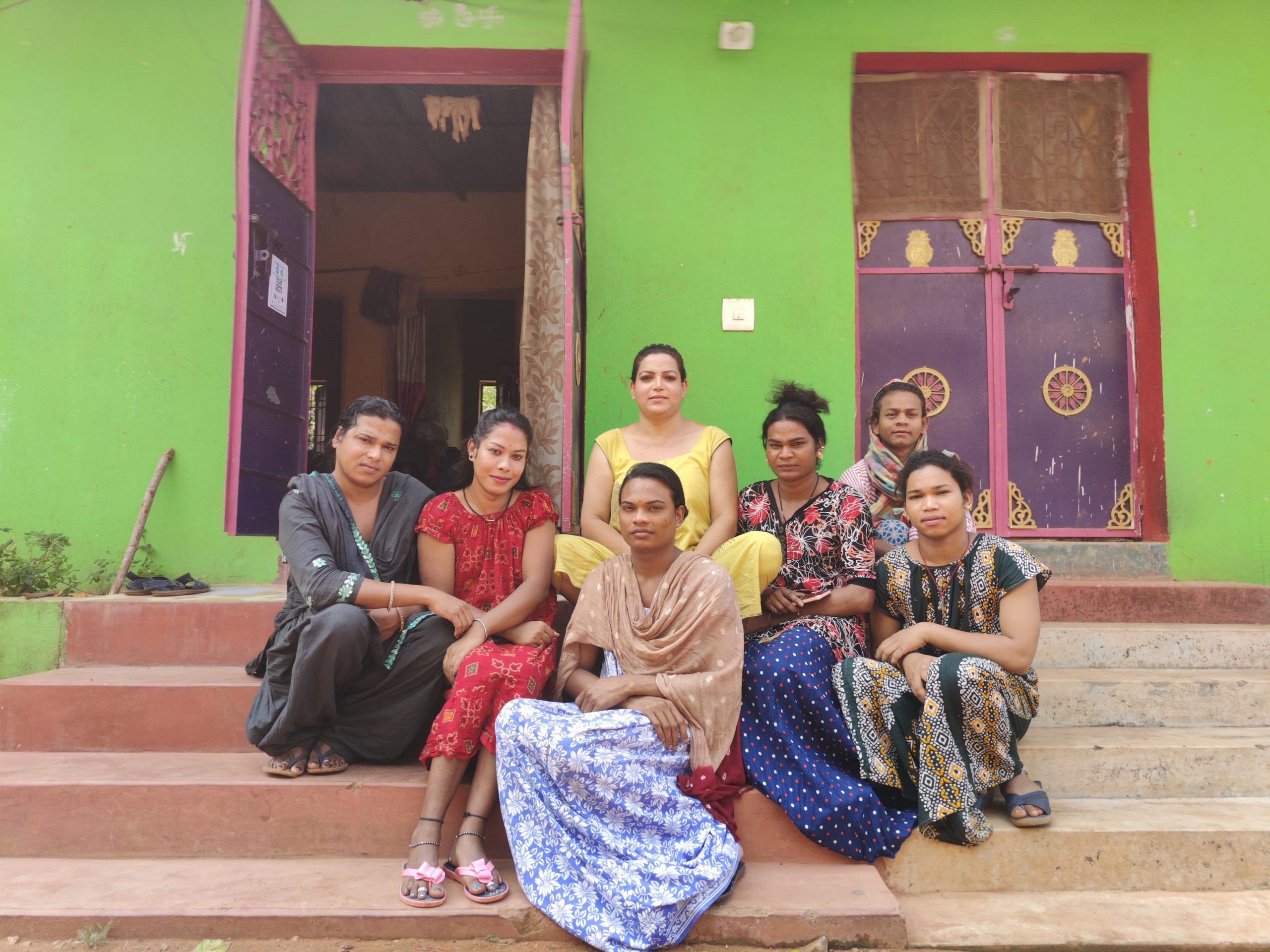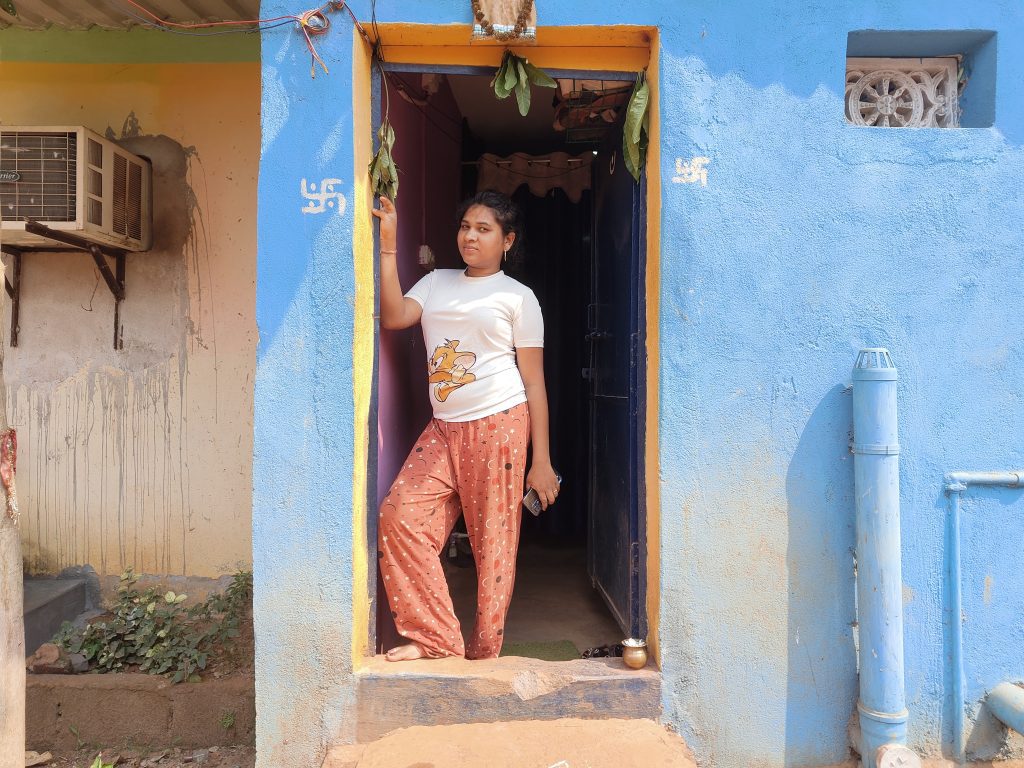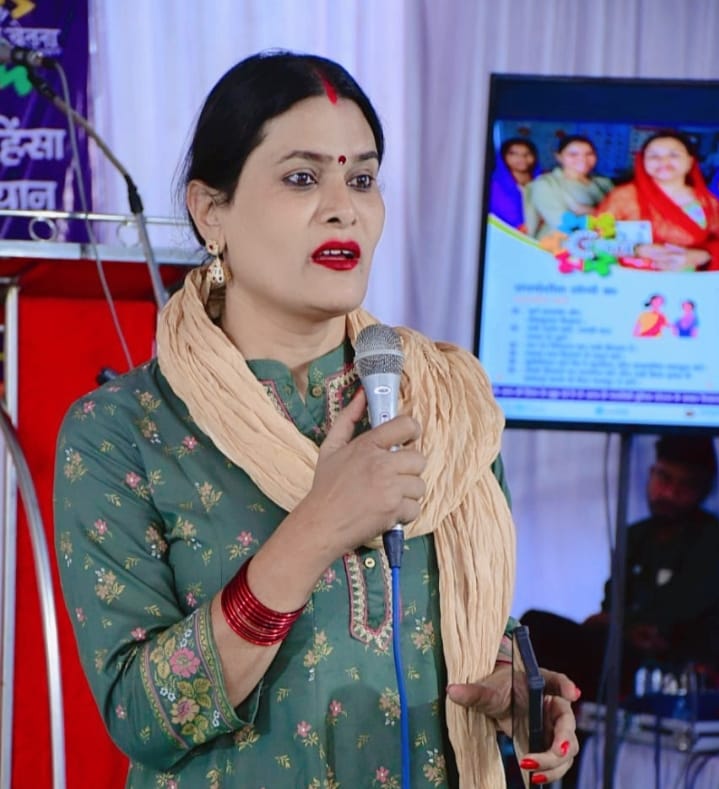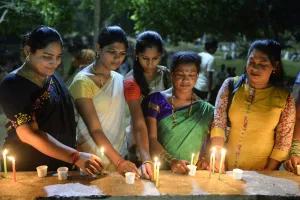How Familial Hostility, Binary Laws Hinder Property Rights Of Transgender Persons
Gendered laws and emotional issues between transgender persons and their often estranged families are problem areas

Sridevi was all of 13 when she ran away from her home in Warangal in central Telangana to escape the daily violence inflicted on her for asserting her identity as a trans woman. She tried to start a new life in Secunderabad, an unknown city full of unfamiliar faces, but realised that her troubles had just begun. She longed for a home of her own.
Two years later, her family found her and took her back to Warangal, and the violence resumed. Soon after, she escaped again, pledging to never return.
In the years that followed, the teenager begged on trains, took to sex work, and slept on railway platforms and footpaths. Faced with starvation, she realised that she had to return home – not to live with her family but demand a slice of the ancestral property that was rightfully hers.
When she returned home at 18, she asked her father for her share in the ancestral property.
“We are five siblings and I had always been told that the land my father owned would be divided equally. But when I went home, the land had already been divided amongst my siblings; I had no share. They then told me that the house we grew up in was in my name. I was happy – I thought I had something to fall back on when I was in need,” says Sridevi, now 60.
But even this assurance was short-lived.
“It was a lie. It was never in my name and I trusted everybody. The house belongs to my brother’s children now. I have nothing to reminisce about with my parents, nothing to carry forward from them,” she says. Sridevi, who makes a living performing ritual songs, now lives in a corner of a 2-bedroom house she shares with 10 others in Hyderabad.
“Par tab akal nahi thi na…ladne ki, toh kuchh nahi kar payi. Ab baccho me akal hai aur unhe khud ke liye ladna chahiye (back then we did not have the brains to fight for our rights. But the generation now is better aware and should stand up for itself),” she says.
Like Sridevi, most transgender persons are forced to leave their natal homes in the face of non-acceptance, discrimination, abandonment and at times, harassment. Often they are inducted into the guru-chela system and live with other members from the community.
Transgender persons find it hard to get rented accommodation, as queerbeat had outlined in an investigative report published in Behanbox, with landlords and housing societies either outright hostile or exploitative. Property ownership and safe accommodation for transgender persons thus become vital for the prevention of discrimination and harassment directed towards them.
Studies have also shown that property ownership improves a person’s social standing. As trangender persons routinely face issues like limited income, unavailability of jobs and housing restrictions, owning a property which translates to financial security, becomes essential.
A transgender person’s gender identity does not match the sex assigned at birth and the category includes trans men, trans women, persons with intersex variations, gender-queers, and persons with socio-cultural identities, such as kinnars and hijras. According to the 2011 Census, India has 487,803 transgender persons, the number however can be an undercount. Sex related data in the Census is represented in the binary format of male and female and the rest are tagged as ‘others’. But those with transgender, intersex and other non-binary identities are excluded from the representation.
In the landmark NALSA judgement of 2014, the Supreme Court observed that the exclusion of transgender persons in inheritance and succession laws is against the principles of equality enshrined in the Constitution. It attributed the existing inequality to two major reasons – the binary notion of gender and the difficulty in identifying successors. Inheritance rights of transgender persons are not mentioned in the Transgender Persons (Protection of Rights) Act 2019 nor in the succession laws. Most civil rights, including succession, inheritance and property rights have been organised along gender binaries. This divide is also reflected in policies.
Interviews with transgender persons show that they are denied a fair share of their property rights by families because of gender binary notions of inheritance, social stigma and long years of dissociation between trans persons and their families. Despite all this, there is a longing among trans persons to return to their roots.
Familial Non-acceptance and Denial
A study conducted by the Kerala Development Society, a non-profit organisation, on behalf of the National Human Rights Commission (NHRC) observed that transgender persons live with a sense of isolation even within households, communities and institutions. Only 2% of them live with their parents.
“In most cases, once families have dissociated themselves from their children due to their gender identity, re-acceptance is rare. Even if this happens, a share in property would again mean an association which they don’t want,” says Sadhna Mishra, a trans woman and co-founder of Sakha, the first community-based organisation for the LGBTQIA+ community in Odisha.
A known name in Odisha, Mishra recently discovered that her share in parental property was less than 10% of what her other siblings will get. “I told my mother that my own brothers and sisters are doing me wrong, won’t she resist ? Should I go to court ? My mother said, ‘You do that after I die, fight all you want after I die’,” Mishra says.
There is a fundamental familial problem with inheritance, says Shreosi Ray, a senior programme officer at Sappho for Equality, it requires well-established relationships with the natal family. “That becomes a challenging point for many [in the transgender community]. We have seen cases where when trans persons leave home and live separately, siblings have asked them for a written declaration stating that they will never return or claim any property,” says Ray.
P Aishwarya, 26, who lives in the transgender colony in Bhubaneswar, left home at 16 when she was beaten and choked by her family members after she was caught dancing uninhibitedly as a girl in a video of the school annual function. For three years, no one from her family reached out to her.

In 2018 when she met with a severe accident, her family came to her help. They took her to Hyderabad for treatment. But her father insisted that she cut her hair short again, remove her earrings and switch back to what is considered conventional male attire. “I was unwell and these things suffocated me even more. My family said I could go back home if I agreed to live like a man. I refused. As soon as I recovered, I returned to Bhubaneswar,” Aishwarya says.
She fended for herself and eventually began sending some money home. The only family member who now talks to her is mother.
“We have no land, but own a two-storey house that is willed to my brothers. I asked my mother if they would consider including my name, but she had no answers. I do not think that is happening,” she says.
Emotional Dilemma
Sadhna Mishra struggled for familial acceptance for 23 years and is not sure if she should fight for her property right or live amicably with her family for the rest of her life and forget issues of inheritance. She feels she will do the latter.
“I am 40. For more than half my life I longed for my family to accept me. They finally did. Today if I take this matter to court, I will probably lose another 10 other years in the legal battle. My mother is 63, she will be 73, I will be 50. There probably will be nothing to look forward to, what would I do with the property then?” she asks.
There is also the fear that resuming the relationship with the family could cause hurt or that the harassment and discrimination would begin again. For Suman Mahakud, a trans man in his early 20s, it means a traumatic past, both for him and his loved ones. It has been four years since Mahakud left his home in Odisha’s Mayurbhanj district, leaving behind a successful transportation business and his past identity.

He now lives 400 km from the place he calls home, looking for work and searching for his identity. Once a year he calls home to check on his parents. This has been the story of his life for the last four years.
“I was in a relationship with a girl when I was 13. My parents found out, thrashed me, made me sleep on a cot outside the house. I was also forced to marry a man. I even attempted suicide,” Mahakud recalls. “In 2019, when I became more aware of who I was, I sat down with my family and spoke to them again. Hardly 10 minutes later they said that this was not a conversation that they wanted to have.”
He then wrote a long letter to his family, detailing his point of view. For the next few days, the letter did not get any response. “Then the most unbearable thing happened: I was assaulted even by my mother in front of my relatives. I was taken to quacks after quacks as they felt I was ill,” he says. There have been days when he survived on water and bread, jobless and with no certainty about the future. But he does not want to return and seek his share in the family property.
“There are days when I feel extremely low, extremely angry that they were not around for me at the toughest of times. And in those moments when I feel that I have been wronged I want to ask them for what is rightfully mine and sever all remaining ties. But that emotion is momentary. The very next moment, I also understand that it is not easy for them to accept my reality. And I do not blame them. Their actions are influenced by the notions and prejudices of the society they live in. And every time I try to understand their perspective, I ask myself, ‘Do I want to hurt them more ? And the answer is no,” Mahakud says.
Transgender persons have reported other kinds of injustices – most have had their documents taken away, or been totally disowned by their families, says Koyel Ghosh, managing trustee of Sappho. This makes it difficult to claim a share in family property. “It is even more difficult for trans men as they deal with complete invisibilisation. We have observed that many of them do not wish to go back to a space which is unsafe and discriminatory. It’s better to lead a life of dignity then go back for money which will only accentuate the suffering,” she says.
The heightened invisibilisation of trans men stems from poor awareness about their identity – persons who identify as male but are assigned female at birth, owing to their reproductive organs. “People generally brush it off as a tomboyish behaviour and force them to adapt to gendered norms,” Mahakud says.
Some fought, won their rights
Vidya Rajput, a transwoman from Chhattisgarh, fought a five-year-long battle to claim her share of familial property. Her eldest brother took care of the family after their father’s death just a few months before Rajput’s birth. She is the youngest of six siblings. At the age of 20, she left home after years of discrimination and mockery.

“I am an activist and I have no source of income. I work with the community and there are days when I have no money. So I needed my share of the property and I had no other way,” she says.
In 2017, she filed a case in the tehsildar’s court in her village in Bastar. Twice every month, she travelled 200 km from Raipur to Bastar for the hearings. She did not face any discrimination inside the court, but she was thrashed, verbally abused and threatened by her brother and his family every time they met for hearings.
“The main issue that I faced was producing witnesses. I had left home 20 years ago, I had to go back to people from the village and ask for help. Meanwhile, my brother and his family would persuade everyone to testify that I was not a part of the family,” she says.
In 2022, she got her share of the land.
A member of the Chhattisgarh Transgender Board, Rajput feels the need for greater legal awareness about inheritance. But she has also witnessed cases where transgender persons avoid litigation due to the absence of legal assistance.
“By law even though they are a part of the family, when it comes to sharing property, we have seen resistance and in many cases also a lack of support from police and judiciary who have a heteronormative understanding of a family structure,” Ray of Sappho for Equality says.
In Bhubaneswar, Samikshya Behera, 41, a transwoman also fought her family for her rights. After completing school, she was sent to Bangalore to pursue a degree in hotel management, which she could not complete due to constant discrimination on campus. She then joined a call centre where she found acceptance of her identity.
“I was once called back home and told that my father was unwell and I should return home,” she says. Once she returned, the family refused to support her financially. “I asked them to give me Rs 10,000 to buy a phone and Rs 5 lakh for a fixed deposit. They paid me Rs 10,000, but nothing after that. My brother and sister in-law gradually stopped talking to me though we lived in the same house. They misled me and took my signature on a piece of paper. It was only later I realised that the papers were to sell off my piece of property which my father had left for me. My brother and his wife did not wish to associate their names with mine because of my identity,” she says.
But she persisted with her demand to be paid for her share and eventually got the money. She then bought herself a flat in Bhubaneswar.
“I knew they would never want to go to court. I could fight so I did. Many others are not able to do that and continue to face issues in even getting a shelter,” she says.
Scope For Challenging The Binary
“Inheritance laws have largely been written in the language of ‘sons’ and ‘daughters’ i.e. essentially implying a binary. However, the NALSA judgement, through its guarantee of non-discrimination, creates scope for challenging this binary. The judgement has read equality in a more substantive sense,” says Surbhi Kawa, a lawyer and researcher.
Even the Transgender Persons (Protection of Rights) Act 2019 prohibits any discrimination in the right to ‘reside, purchase, rent or otherwise occupy any property’, it remains silent on inheritance laws.
The Indian Succession Act, 1925 used a gender neutral nomenclature of heirs, but most Indians abide by specific succession laws. The Hindu Succession Act 2005 for instance, is strictly limited to male and female genders in the definition of heirs and in the order of succession. Muslim property law is essentially uncodified and abides by the Sharia law. Inheritance rights are determined according to customary laws and hence differ from case to case.
Legal experts feel that it is rare for transgender persons to take a dispute to court because it invariably demands an encounter with those who subjected them to abuse early in their lives. Even though the NALSA judgement with its specific mention of inheritance brings in hope, in many instances successions laws take precedence.
Vyjyanti Mogli, a trans woman and a Right to Information (RTI) activist, who uses Public Interest Litigation (PIL) in courts to advance LGBTQIA+ rights talks of her experience with property rights: “During crisis interventions we have seen that trans persons have been told that since you have changed your gender, or you are neither male or female and since succession acts have no reference to transgender persons, you can not be considered legal heirs. This is often the first set of arguments.”
Mogli added that in many cases, the family tries to establish that the property is “earned” and not ancestral even if that is not the fact. “ In case of ancestral property they will have to distribute it equally amongst the legal heir,” she says.
Another queer rights activist and human rights lawyer in the Supreme Court, Rohin Bhatt, believes that the solution lies in a gender neutral law: “First of all, filing a case often leads queer people to come face to face with their natal families who have, in some cases, subjected them to abuse, which puts them in a vulnerable position. Second, the law is gendered. The answer has to lie in a gender neutral law which says that the child has these rights, the parent has these rights, the spouse has these rights and so on.”
We believe everyone deserves equal access to accurate news. Support from our readers enables us to keep our journalism open and free for everyone, all over the world.




